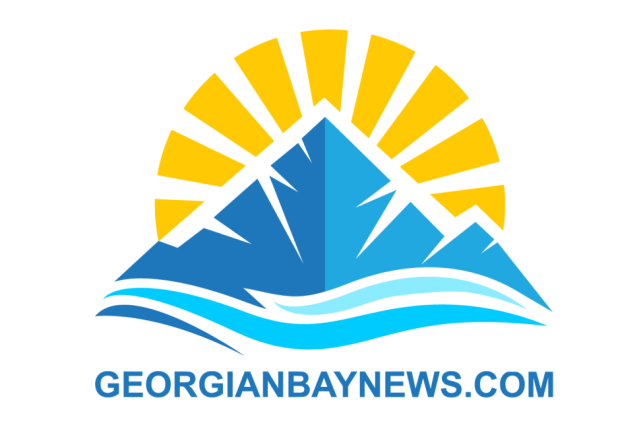In a rapidly evolving news landscape, staying informed requires more than just headlines—it demands context, analysis, and an understanding of how seemingly disparate events interconnect.
The last 24 hours have witnessed significant developments across politics, artificial intelligence, and international affairs that will shape our world in the days and weeks to come. From the Trump administration’s educational institution policies to groundbreaking AI advancements and humanitarian crises abroad, this comprehensive overview brings you the most important stories of the day with the depth and insight you need to truly understand their implications.
Politics: Power Plays and Policy Shifts
Trump Administration’s Educational Institution Focus
The relationship between the Trump administration and America’s educational institutions has reached a new inflection point. Federal agencies are now reviewing an estimated $100 million in grants to Harvard University to determine whether they should be terminated, according to both The New York Times and BBC reports. This follows a letter from the U.S. General Services Administration instructing agencies to submit lists of contracts they have terminated with the university.
This action against Harvard represents the latest salvo in what appears to be a broader campaign targeting educational institutions. The administration has also paused new student visa interviews as it weighs expanding social media vetting policies. “It’s the latest salvo against universities, many of whom rely heavily on foreign students for funding,” reports Nahal Toosi of Politico.
The General Services Administration has proclaimed that Harvard “engages in racial discrimination in its admissions and other aspects of campus life,” a claim that has become central to the administration’s justification for these actions. However, critics argue this represents an unprecedented intrusion into academic independence.

Federal Funding as Political Leverage
The targeting of educational institutions is part of a wider pattern of using federal funding as political leverage. President Trump has directly confronted California Governor Gavin Newsom, threatening to slash federal funding over the state’s youth transgender sports participation policies. According to Amanda Friedman of Politico, this confrontation stems from “the Democrat’s recent rift with his party on the issue.”
Meanwhile, National Public Radio has filed a lawsuit against the Trump administration following cuts to its federal funding. A lawyer for the public broadcaster called the executive order “blatantly unconstitutional,” according to NPR’s own reporting. This legal challenge highlights growing tensions between the administration and media organizations receiving federal support.
The use of pardons has also raised questions about political favoritism. Kenneth P. Vogel of The New York Times reports that Paul Walczak’s pardon application “cited his mother’s support for the president, including raising millions of dollars and a connection to a plot to publicize a Biden family diary.” This pardon followed his mother’s attendance at a $1 million dinner event.
International Relations Shifts
On the international stage, President Trump’s recent actions and statements suggest he might want “an arrangement where the United States, China and Russia each dominate their sphere of influence,” according to Edward Wong of The New York Times. This “One World, Three Powers” vision represents a significant departure from traditional U.S. foreign policy approaches.
Amid these shifts, King Charles III has emphasized Canada’s sovereignty during his historic visit to open the country’s parliament. The King stated that a “new economic and security relationship” between Canada and the US will “deliver transformational benefits for both sovereign nations,” a statement widely interpreted as a response to recent annexation comments from the Trump administration.
Artificial Intelligence: Investments, Ethics, and Breakthroughs
Major Infrastructure Investments
The artificial intelligence sector continues to see unprecedented levels of investment. Oracle has announced a massive $40 billion deal with Nvidia for chips to power a new AI facility being built in Texas. This represents one of the largest investments in AI infrastructure to date and “further deepens the footprint of the president’s business empire in the $3.5 trillion cryptocurrency market,” according to Declan Harty of AI News.
The United Kingdom is also making significant AI investments, deploying the technology to enhance security monitoring in the Arctic region in response to increasing geopolitical tensions. This summer, the UK government will confirm the next sites for AI Growth Zones—specialized clusters designed to host AI infrastructure and unlock billions in private investment—as part of a fresh UK-EU collaboration.

Ethical Challenges and Regulation
As AI capabilities expand, so do concerns about ethics and regulation. A new report examines the ethical challenges in AI automation, particularly focusing on bias mitigation and regulatory compliance frameworks. This comes as the European Union has launched a child safety probe into Pornhub and three other porn sites, citing concerns that they do not appear to have “appropriate” age verification systems to prevent children from accessing content.
Privacy concerns continue to evolve in AI-powered environments. Researchers have developed a framework to enable decentralized artificial intelligence-based building automation with a focus on privacy. The system enables AI-powered devices like cameras and interfaces to function while protecting user data, addressing a growing concern in smart building technology.
Breakthrough Innovations
The pace of AI innovation shows no signs of slowing. New research highlights how machine learning technologies are being deployed to improve security in cloud-native container environments, addressing emerging vulnerabilities in an increasingly containerized computing world.
In a fascinating development, humans no longer have exclusive control over training social robots to interact effectively, according to a new study from ScienceDaily. The research introduces a simulation method that allows researchers to test their social robots without needing human participants, potentially accelerating development cycles.
AI emotional intelligence assessment capabilities are also advancing, though with notable limitations. A team put six generative AIs—including ChatGPT—to the test using emotional intelligence assessments typically designed for humans. While showing promise, research reveals that current vision-language AI models struggle with understanding negation in commands or descriptions, highlighting a significant limitation in their comprehension abilities.

World Events: Crises, Diplomacy, and Security
Humanitarian Crises
The humanitarian situation in Gaza has reached a critical point. Chaos erupted on the first day of aid distribution by a US-backed organization after weeks of hunger. Hundreds of Palestinians collected food from a site run by the Gaza Humanitarian Foundation, though the UN has called this work a “distraction.” According to Al Jazeera, gunshots were fired to disperse people from the aid distribution area, underscoring the desperate conditions.
A former UNRWA spokesperson described the Gaza Humanitarian Foundation as “armchair humanitarianism at its worst,” highlighting divisions over the appropriate approach to the crisis. The situation has prompted accusations that Israel’s “weaponisation of food is shameful and must stop,” with some critics suggesting aid points are Israel’s “last card” in expelling Palestinians from Gaza.

Diplomatic Developments
On the diplomatic front, ASEAN has kicked off summits with China and Gulf states amid US tariff threats. These meetings come at a critical time as trade tensions escalate globally, with particular focus on the challenges in US-EU trade negotiations.
Iran has signaled a willingness to compromise with the Trump administration, suggesting that the US now better understands Iran’s “red lines.” This potential diplomatic opening comes amid ongoing tensions in the Middle East and represents a possible shift in regional dynamics.
In Canada, King Charles III made what observers called an “impactful” trip as Trump pushes a “51st state claim.” During his address opening Canada’s parliament, the King emphasized the country’s “self-determination,” stating “The True North is indeed strong and free”—a line from the Canadian national anthem widely interpreted as a response to recent annexation comments.
Global Security Concerns
Despite recent diplomatic efforts to negotiate peace, military operations continue on both sides of the Russia-Ukraine conflict. Drone warfare and ground offensives persist despite a new Russia-Ukraine peace push, demonstrating the challenges of resolving this entrenched conflict.
North Korea has responded strongly to US defense initiatives, saying Washington’s “Golden Dome” plan to counter aerial threats risks “space nuclear war” and is “the height of self-righteousness.” This rhetoric highlights ongoing tensions on the Korean peninsula.
Industrial incidents with international implications continue to occur. A huge explosion at a chemical plant in China’s Shandong province has killed at least five people, with footage showing thick columns of black smoke rising from the site. Such incidents often have ripple effects on global supply chains and environmental concerns that cross borders.
Looking Forward: Implications and Interconnections
Today’s news landscape reveals several interconnected themes that will continue to shape our world. The Trump administration’s approach to educational institutions, media organizations, and international relations demonstrates a consistent pattern of using financial leverage to advance policy goals. This strategy is likely to expand to other sectors and institutions in the coming weeks.
In the AI realm, massive investments in infrastructure signal a new phase in the global technology race, with implications for economic competitiveness, national security, and ethical governance. The balance between innovation and regulation will remain a central challenge as AI capabilities continue to advance at a rapid pace.
Internationally, humanitarian crises, diplomatic realignments, and security concerns highlight the complex and often contradictory forces at work in global affairs. The Gaza situation, ASEAN summits, and Russia-Ukraine conflict each represent different facets of a changing world order where traditional alliances and assumptions are increasingly being questioned.
As informed citizens, understanding these interconnections is crucial. Today’s headlines are not isolated events but threads in a complex tapestry of global developments that will shape our collective future. By looking beyond the headlines to the underlying patterns and implications, we can better navigate an increasingly complex world.





















